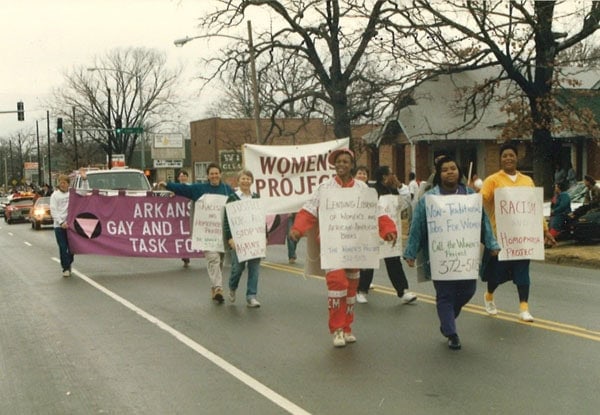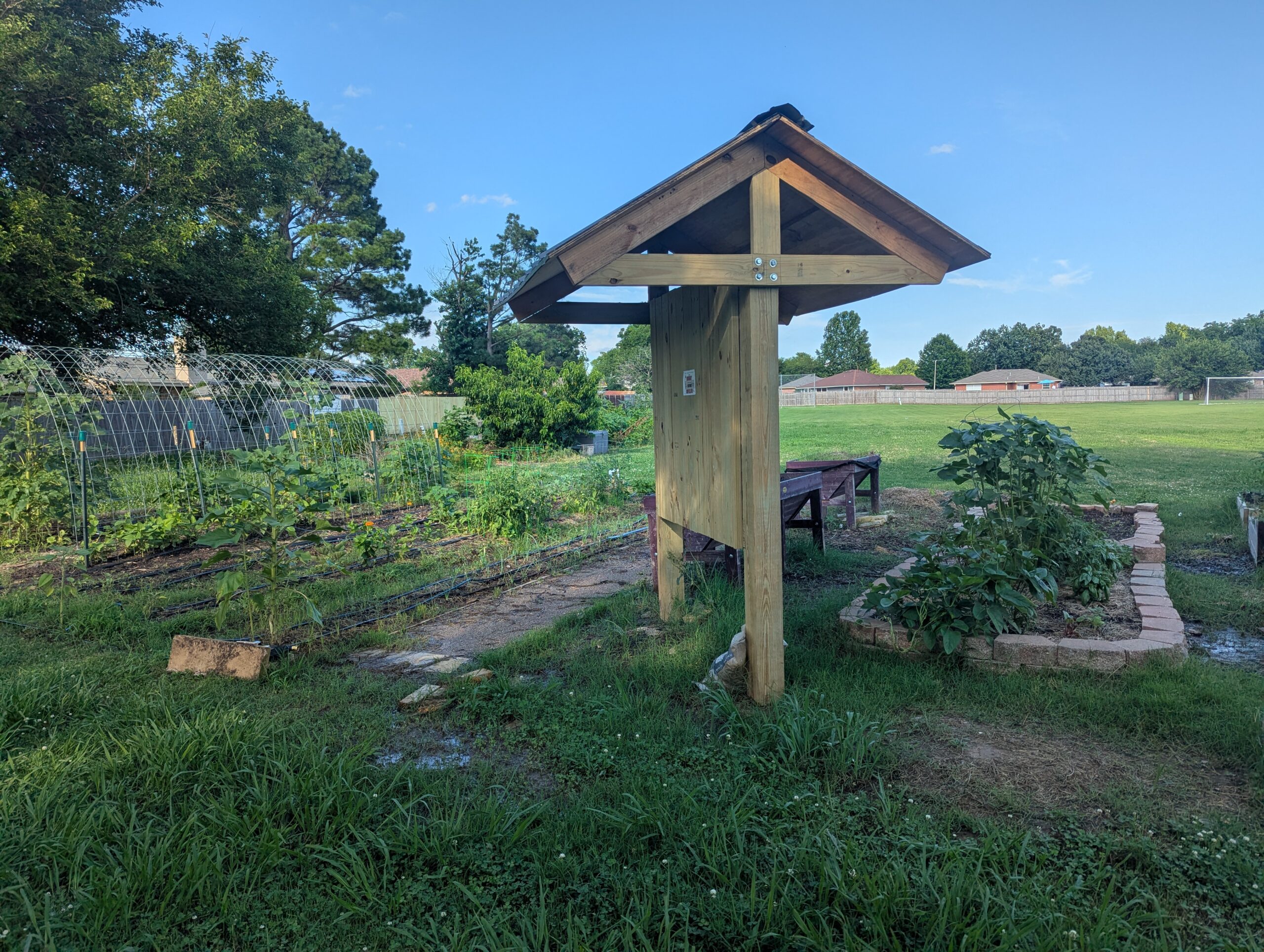Editor’s note: This is the first installment of a two-part column. The second installment can be found here.
In the summer of 2015, I was standing in line for baked chicken and greens at a grassroots organizing training in a Uniontown, Alabama, church hall. Behind me was Anna Stitt, a new friend and fellow organizer from Arkansas. We had driven over with a small group from our home state to build connections with others involved in the Southern Movement Assembly, which is made up of frontline, grassroots organizations building strategy together in the South. Ahead of us in line was an older woman I knew only by reputation: Suzanne Pharr, author of nationally lauded books and co-founder of a powerhouse Southern queer liberation organization. When she heard we were from Arkansas, she told us that she had done some of the best organizing work of her life there, though she now lived in Tennessee. We were floored. We had no idea that in 1980 she had founded the Women’s Project, a multiracial feminist organization that fearlessly challenged the status quo in our state for decades.

Members of the Women’s Project march on Martin Luther King Jr. Day, early 1990s. Lynn Frost.
Anna and I were independently part of organizations that sought to learn from social movement history in Arkansas, but these efforts were often thwarted by paywalls, academic siloes, and, perhaps most of all, limited connection to our elders. We had each eagerly studied what we could find on subjects like the Depression-era work of the Southern Tenant Farmers Union and the socialist experiment of Commonwealth College. Meeting Suzanne highlighted how disconnected we were from so many of those who had transformed Arkansas’s political landscape before us. Anna and I began brainstorming ways to overcome these obstacles and realized that we would have to create the resources we needed. And so that weekend, in the sweltering Black Belt heat, the Arkansas People’s History Project took root.
The project seeks to do community-based history in reciprocal ways that strengthen intergenerational relationships, build skills, and shift power while challenging dominant narratives. Knowing the central role of personal relationships in organizing work, Anna and I began envisioning ways of uncovering and broadening awareness of hidden histories, and not in extractive ways that suck information out of communities without any follow-up, recompense, or ongoing commitment. The potential to support or spark movement work is one of the main criteria we use in identifying promising historical moments. Many of these overlooked histories, from sharecropper uprisings in the Delta in 1890 to labor organizing in Ozark poultry plants in 1990, are precedents for today’s struggles. Because organizers and our communities have been systematically disconnected from our own histories of resistance, we often tread these wagon ruts unaware.
We are not the only people with these questions and aspirations, not by a long shot. We have drawn inspiration and lessons from forward-thinking public history projects across the United States and Canada. The best of these combine ongoing documentation of under-represented histories, a strong focus on creative ways to increase access to primary source materials, and deep accountability to the communities they serve.
Probably the most difficult task for public historians in this work is maintaining the relationships needed with community partners to achieve deep accountability.
Probably the most difficult task for public historians in this work is maintaining the relationships needed with community partners to achieve deep accountability. Communities are ever-shifting, vast, and diverse, and they rarely reach consensus. Accountability can be cultivated by ensuring that decision-making power is shared with those on the frontlines, such as in the trans-led New York City Trans Oral History Project. Clear communication and a commitment to reciprocity are key. We believe that public historians serious about accountability in movement history projects are also obligated to ensure their collections, media pieces, and outreach programs are working to advance current movement work.
One of our gold standards is the Freedom Archives in San Francisco, California, which recently celebrated its 20th anniversary. Formed by radical radio broadcasters who feared the loss of historical audio recordings from various movements, Freedom Archives preserves and shares audio, video, and print materials (including poetry and song recordings) from progressive movements that peaked between the 1960s and the 1990s. Freedom Archives focuses on expanding the capacity of young people to access and interpret powerful primary sources about the history of resistance. Their collections and media are regularly used by grassroots organizations in trainings, political education, direct action, and media production. We hope to follow in their footsteps by eventually offering the public a user-friendly online digital archive and creating educational audio and video documentaries. We also plan to maintain strong connections to local organizing in addition to our historical work.
Perhaps appropriate, given the origins of the Arkansas People’s History Project, our pilot focuses on the early history and impact of the Women’s Project, which operated as a many-spoked wheel to address issues vital to working-class women, including violence against women, child abuse, white supremacist violence, economic inequality, AIDS, mass incarceration, and sex worker safety. After several years of ground work—archival research, conversations with historians and elders, advice from participatory media makers—we began recording interviews in 2018 with the web of women who rolled up their sleeves to bring intersectional feminism to life on the backroads and Main Streets of Arkansas. We strive to work in partnership with the interviewees and their networks to collectively determine how best to share this history and make it part of the “usable past.” In my next column, I’ll explain how we’re navigating various challenges to establishing the deeply participatory process we envision.
Acadia Roher, a 2019 AHA Summer Columnist, is a first-year graduate student in public history at the University of Arkansas at Little Rock and co-founder of the Arkansas People’s History Project.
This work is licensed under a Creative Commons Attribution-NonCommercial-NoDerivatives 4.0 International License. Attribution must provide author name, article title, Perspectives on History, date of publication, and a link to this page. This license applies only to the article, not to text or images used here by permission.


